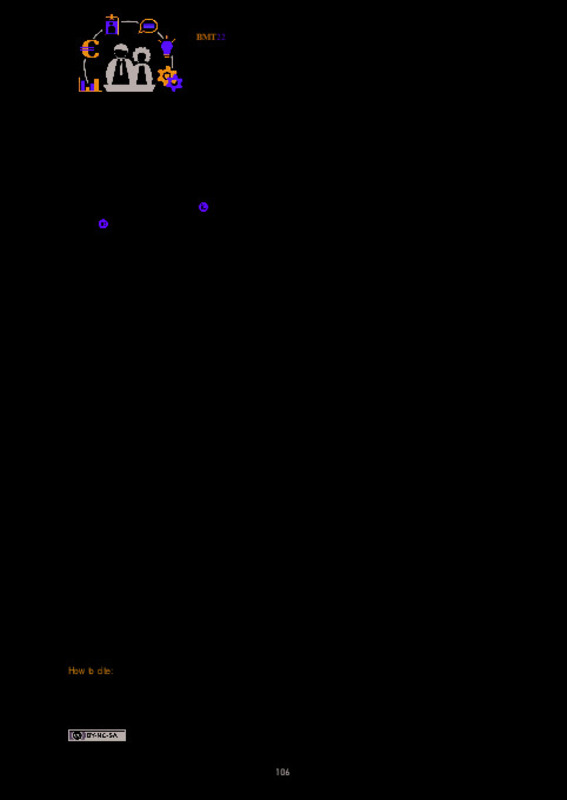JavaScript is disabled for your browser. Some features of this site may not work without it.
Buscar en RiuNet
Listar
Mi cuenta
Estadísticas
Ayuda RiuNet
Admin. UPV
Lost in the forest of circular economy certificates in tourism sector
Mostrar el registro sencillo del ítem
Ficheros en el ítem
| dc.contributor.author | Perello-Marin, M Rosario
|
es_ES |
| dc.contributor.author | de Miguel Molina, Maria
|
es_ES |
| dc.contributor.author | Carrascosa López, Conrado
|
es_ES |
| dc.contributor.author | Mas Gil, Miguel Ángel
|
es_ES |
| dc.date.accessioned | 2023-03-08T10:35:44Z | |
| dc.date.available | 2023-03-08T10:35:44Z | |
| dc.date.issued | 2023-01-10 | |
| dc.identifier.isbn | 9788413960289 | |
| dc.identifier.uri | http://hdl.handle.net/10251/192439 | |
| dc.description.abstract | [EN] Circular economy represents a paradigm shift compared to the linear economy (producer, use and throw away). This offers the possibility of producing by reducing waste and even seeks mechanisms to reuse them. This concept allows companies to show more responsible behavior. Moreover, it is shown as a source of improvement and efficiency. Circular economy has been implemented for a long time in industrial sectors, but it is not so widespread so far in the tourism sector. However, it is known to be one of the sources of improvement available to tourism companies, and in the last few years, these types of companies are showing great interest in adopting it. One of the difficulties for them is finding the right way to adopt specific measures. One of the paths that help companies to make their efforts more effective and also more visible is going for an official certificate that may show their stakeholders that they are consistent with circular economy principles. For this reason, most of the companies implementing circular economy also seek the reward of the visibility that a certification gives. However, many tourism companies feel lost in the forest of the huge amount of certificates available nowadays in the market, which supposedly analyze and identify such behavior. This article tries to shed some light to help companies within this context. | es_ES |
| dc.format.extent | 8 | es_ES |
| dc.language | Inglés | es_ES |
| dc.publisher | Editorial Universitat Politècnica de València | es_ES |
| dc.relation.ispartof | 4th International Conference Business Meets Technology 2022 | |
| dc.rights | Reconocimiento - No comercial - Compartir igual (by-nc-sa) | es_ES |
| dc.subject | Hospitality industry | es_ES |
| dc.subject | Certification | es_ES |
| dc.subject | Tourism industry | es_ES |
| dc.subject | Circular economy | es_ES |
| dc.title | Lost in the forest of circular economy certificates in tourism sector | es_ES |
| dc.type | Capítulo de libro | es_ES |
| dc.type | Comunicación en congreso | es_ES |
| dc.identifier.doi | 10.4995/BMT2022.2022.15640 | |
| dc.rights.accessRights | Abierto | es_ES |
| dc.contributor.affiliation | Universitat Politècnica de València. Facultad de Administración y Dirección de Empresas - Facultat d'Administració i Direcció d'Empreses | es_ES |
| dc.contributor.affiliation | Universitat Politècnica de València. Departamento de Organización de Empresas - Departament d'Organització d'Empreses | es_ES |
| dc.description.bibliographicCitation | Perello-Marin, MR.; De Miguel Molina, M.; Carrascosa López, C.; Mas Gil, MÁ. (2023). Lost in the forest of circular economy certificates in tourism sector. En 4th International Conference Business Meets Technology 2022. Editorial Universitat Politècnica de València. 106-113. https://doi.org/10.4995/BMT2022.2022.15640 | es_ES |
| dc.description.accrualMethod | OCS | es_ES |
| dc.relation.conferencename | 4th International Conference. Business Meets Technology | es_ES |
| dc.relation.conferencedate | Julio 07-09, 2022 | es_ES |
| dc.relation.conferenceplace | Ansbach, Alemania | es_ES |
| dc.relation.publisherversion | http://ocs.editorial.upv.es/index.php/BMT/BMT2022/paper/view/15640 | es_ES |
| dc.description.upvformatpinicio | 106 | es_ES |
| dc.description.upvformatpfin | 113 | es_ES |
| dc.type.version | info:eu-repo/semantics/publishedVersion | es_ES |
| dc.relation.pasarela | OCS\15640 | es_ES |








